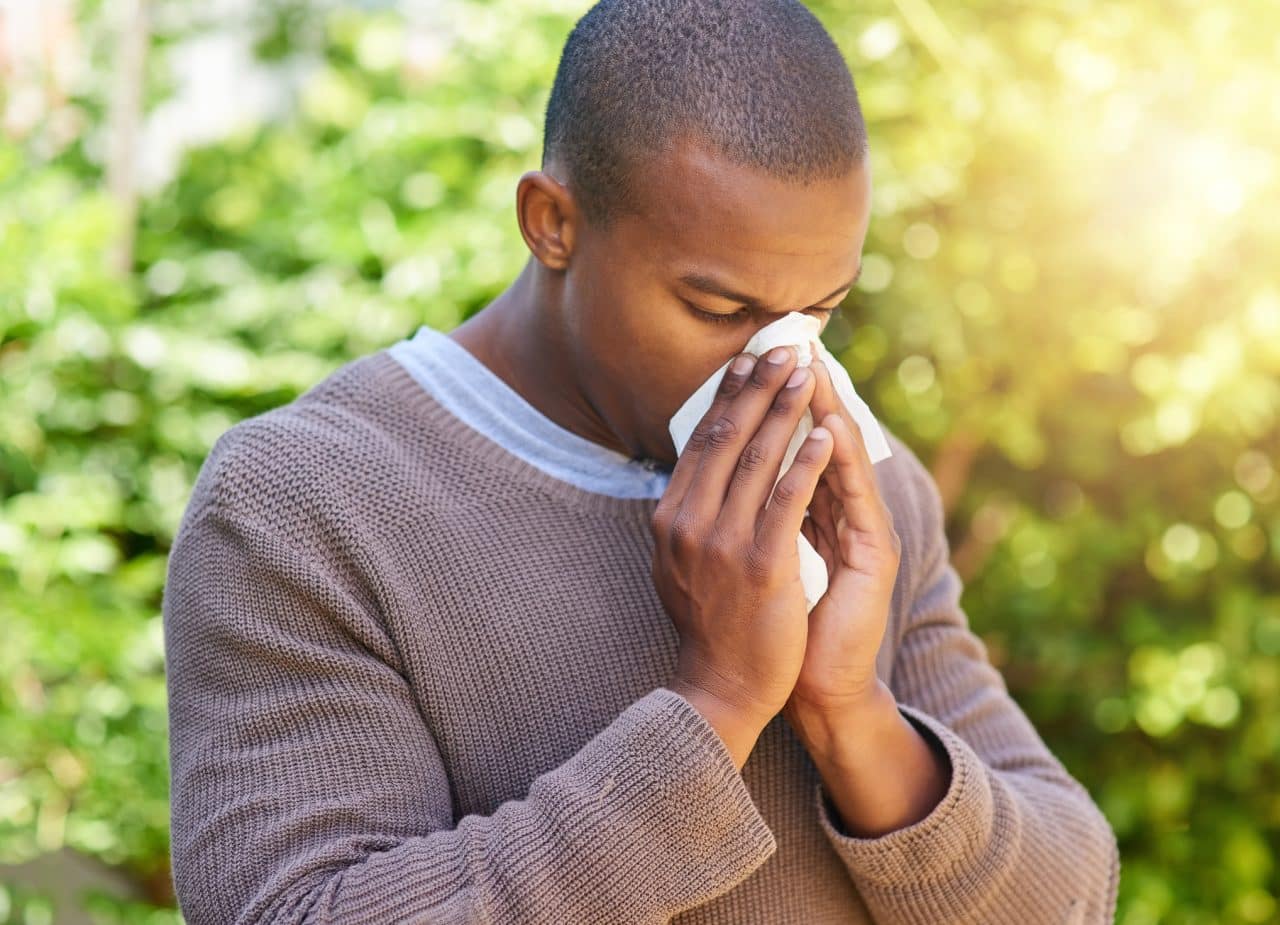If you tend to feel ill around the same time each year, you may be wondering if what you’re experiencing is allergies or the common cold. Below we review the causes of each, how to tell the difference between the two conditions and what treatments are available.
What Causes Allergies?

Your immune system works to protect your body from diseases, viruses and infections. But for more than 50 million Americans, their immune system mistakes harmless substances such as pollen, pet dander, dust mites, certain foods, mold and insect stings as dangerous intruders. An allergic reaction occurs when your body is exposed to one of these harmless substances, known as allergens, and your immune system overreacts.
In order to fight off the intruder, your immune system releases antibodies called Immunoglobulin E (IgE), which tells your cells to release histamine. Histamine increases your mucus production and causes inflammation.
What Causes a Cold?
There are many types of viruses that can cause a common cold, but rhinoviruses are most common. The virus can enter your body through the eyes, nose or mouth in the form of droplets that enter the air when someone who is infected coughs, sneezes or talks. It can also be spread through hand-to-hand contact or shared objects if you touch your face after contact with them.
How to Tell the Difference Between Allergies and a Cold
Below is a list of symptoms and whether you’re likely to experience them with allergies and a cold.
| Symptom | Allergies | Cold |
| Headache | Common | Common |
| Itchy, watery eyes | Common | Rare |
| Itchy ears | Common | Never |
| Runny, stuffy nose | Common | Common |
| Sneezing | Common | Common |
| Cough | Dry | Hacking |
| Sore throat | Rare | Common |
| Fatigue | Common | Common |
| Fever | Never | Rare |
| Body aches | Rare | Common |
How Are Allergies Treated?
There are many ways to treat allergies. You can:
- Practice avoidance. Once you get an allergy test and you know what you’re allergic to, you can avoid those allergens as much as possible.
- Take medications. Antihistamines, decongestants and corticosteroids are available over the counter at [LOCAL – DRUGSTORE]. Talk to your allergist or pharmacist to learn how to safely dose these drugs.
- Undergo immunotherapy. Immunotherapy is a long-term solution for allergies that works by helping your body build up a tolerance to allergens.
How Is a Cold Treated?
The best way to get over a cold is to rest and hydrate. You can also take over-the-counter cold medication to manage symptoms. If your cold persists longer than seven days, you should see a doctor, as it could be something else.
For more information or to schedule an appointment, call ENT of Georgia North today.